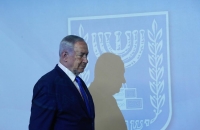
Asher Kaufman
Asher Kaufman is professor of history and peace studies and a core faculty member. His region of expertise is the modern Middle East with a particular focus on Lebanon, Israel, and Syria. His research interests include the history and legacy of nationalism and colonialism in the Middle East, border conflicts and dynamics, and the interplay between memory, history, and violence.
Kaufman’s current project examines the 1982 Israeli invasion of Lebanon and the consequent 18-year occupation of South Lebanon from 1982 to 2000. In this project he studies questions of memory, forgetfulness, and silence within Israeli, Lebanese and Palestinian societies. He also explores border dynamics between Lebanon and Israel and investigates Israel’s occupation of South Lebanon, comparing it with the country’s occupation of the Occupied Palestinian Territories.
He received a Ph.D. from Brandeis University in 2000.
Kaufman is the author of Contested Frontiers: Cartography, Sovereignty, and Conflict (Woodrow Wilson Center,with Johns Hopkins). He also is the author of Reviving Phoenicia: The Search for Identity in Lebanon (I.B. Tauris), a history of modern Lebanese national identity.
Among Kaufman’s recent publications are “Belonging and Continuity: Israeli Druze and Lebanon, 1982-2000,” International Journal of Middle East Studies 48 (2016), 1–20; “Thinking Beyond Direct Violence,” International Journal of Middle East Studies (May 2014), pp. 441-444; “Colonial Cartography and the Making of Palestine, Lebanon and Syria,” in Cyrus Schayegh and Andrew Arsan (eds.), The Routledge Handbook of the History of Middle East Mandates (London: Routledge, 2015). “Between Permeable and Sealed Borders: The Trans-Arabian Pipeline and the Arab-Israeli Conflict,” International Journal of Middle East Studies (February 2014), pp. 95-116; Forgetting the Lebanon War? On Silence, Denial and Selective Remembrance of the ‘First’ Lebanon War,” in Shadows of War: A Social History of Silence in the Twentieth Century, edited by Efrat Ben Ze’ev, Ruth Ginio and Jay Winter (Cambridge University Press, 2010).
Gaza ceasefire and hostage deal: Why now and what next?
Jan 17, 2025 14:34 pm UTC| Insights & Views Politics
A much-anticipated Gaza ceasefire and hostage deal is set to take effect on Jan. 19, 2025 subject to an Israeli government vote on the package scheduled for the morning of Jan. 16. The breakthrough comes 15 months into...

Aug 01, 2024 22:13 pm UTC| Insights & Views
Israels apparent assassinations of Fuad Shukr, Hezbollahs top military leader, in Beirut, and Hamas political leader Ismail Haniyeh, in Tehran, have raised again the specter of a regional war involving regional adversaries...
- Market Data









































